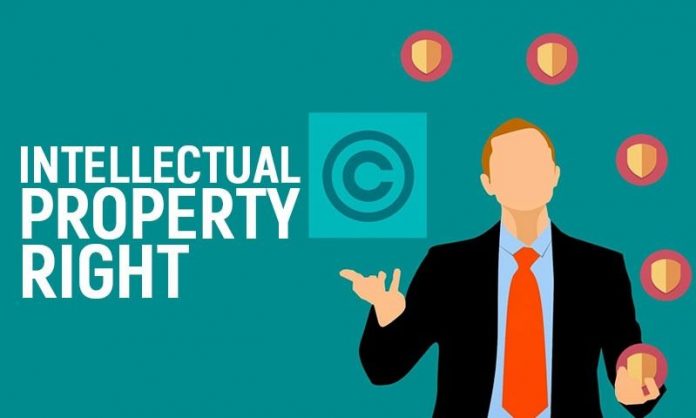This article has been written by Oishika Banerji of Amity Law School, Kolkata. This article discusses basic qualities and skills that an IP lawyer should definitely have.
Table of Contents
Introduction
Intellectual property is a developing branch of law and therefore has a lot of envelopes that are to be unfolded. Along with significant development, this branch of law comes with a plethora of challenges that are to be addressed so as to eliminate the hindrances existing in the pathway of its growth. The job of an IP lawyer is immense and layered when it comes to tackling these challenges and therefore an IP lawyer should be skilled and acknowledged with certain basic qualities that can help them excel in this new field of law. This article provides a list of primary qualities and skills that an IP lawyer should be possessing.
Basic qualities and skills that an IP lawyer should definitely have
Much of the work done by IP lawyers is nothing like the dramatic courtroom confrontations shown in movies and television. Instead, they spend their time at offices and other locations, reviewing or producing essential documents, conducting interviews, and doing thorough analyses of often extremely technical material. Anyone interested in a legal career (IP law or otherwise) should seek educational, extracurricular, and life experiences that will help them develop key attributes such as strong analytical thinking, problem-solving, critical reading, writing and editing, oral communication, listening, and research skills, according to the American Bar Association. Public service, justice promotion, relationship development, and teamwork are some of the other talents and experiences that are encouraged.
Basic qualities
Intellectual curiosity
- It is vital for younger colleagues who are interested in IP to demonstrate intellectual curiosity. Not only about the constantly changing state of the law, but also about the economic and geopolitical variables influencing their clients’ relationships in today’s global economy.
- IP associates should be interested in how products are created and marketed today, regardless of the industry in which their client operates. Learning about a client’s business is essential to practice for any lawyer, but IP lawyers have a more complete brief.
- They must also learn about their client’s competitors and become knowledgeable with supply networks, indemnity agreements, and the retailer or supplier relationship. Even though a young lawyer must learn technical lawyering abilities to succeed, enthusiasm in understanding these topics is required.
Dealing with client’s expectations around ownership of the intellectual property at issue
- IP associates must deal with their clients’ expectations regarding ownership of the intellectual property at issue, which is possibly the most difficult obstacle provided by a career in IP law.
- Because both sides in any intellectual property dispute will definitely believe that the other side is incorrect on the ownership issue. Either the accused infringer will contest whether the IP is lawfully owned by anyone, or they will argue that the IP owner is mistaken about what they own.
- The IP owner, on the other hand, will feel strongly that their property rights are being violated, even if they enter a fight with the mistaken idea that they own more than they do.
- As a result, IP lawyers must have the emotional intelligence and emotional energy to match their clients’ strong views about ownership, while never failing to educate the client about the strengths and limitations of their position in light of the legal procedure they are involved in. That is, in many ways, the great problem of IP practice, and it is not one for the faint of heart.
Learning the limits of intellectual prowess
- You can have both a law degree and a fancy technical (and even graduate-level) degree in science. Working with premier scientists and inventors in a number of fields, who are by nature performing cutting-edge work, is part of the thrill and challenge of a career in IP law.
- Being exposed to developments in science and the arts is thrilling, but the intelligent IP lawyer also recognizes the significance of preserving intellectual humility. Because one of the fundamental talents that distinguish average IP lawyers from their world-class counterparts is the latter’s ability to act as a conduit for sophisticated technical material in the context of a compelling legal argument. To do so effectively, you’ll need the humility to listen to others’ greater expertise.
- Furthermore, even if one is a true wizard at assimilating technical information, there is always the issue of damages in IP cases, a subject that can befuddle even the most brilliant minds, and which almost always necessitates the use of an economic expert for the benefit of the factfinder and adjudicator. Nothing is more humbling than attempting to develop or defend a coherent damages theory in even the simplest IP case.
Required skills
An IP lawyer must be equipped with skills such as logical reasoning, innovative thinking, drafting skills, management abilities, etc to be able to succeed in their professional career.
When it comes to trademark registration, dealing with objections and oppositions is a necessary part of the process
There are a lot more objections and oppositions in registering a trademark since pre-registration input from lawyers is at an all-time low for a big number of trademark applications. At the moment, the job is rising faster than lawyers and legal companies can keep up. Therefore, charges and margins are extremely large. As of 2020, being very proficient with the trademark register, particularly for the purpose of resolving objections and resistance, implies a sure shot ticket to a well-paying career, and this is unlikely to alter in the next half-decade as the speed of registration continues to grow.
Prevent competitors from duplicating client’s software
Copying by competitors is one of the most serious issues that startups and creative software developers confront. The software can be patented in some cases, although this is not always a possibility. The software, however, is copyright protected. Lawyers devise tactics to stifle competitors that attempt to release cloned software. It may not always be able to prevent the client’s competitors from launching software with the same logic and functionality as the client, but competitors are frequently intimidated or injunctions are obtained to delay launch through strategic litigation.
Dealing with copyright societies
IP lawyers are responsible for responding to notices from copyright societies, making correct arrangements with applicable copyright societies, and dealing with copyright societies’ litigation. In India, copyright societies operate in a hazy environment, with a lack of legal clarity and conflicting claims. Through negotiation and legal strategy, lawyers play a key role in obtaining maximum royalties for performances as well as decreasing royalty payments to a minimum.
Conducting IP due diligence
This is a sub-discipline of due diligence. IP due diligence services are required by a large number of valuable enterprises that are offered for sale, have attempted to go public, or are searching for large-scale financing. The buyer, investor, or financier is usually the recipient of the services. Due diligence on intellectual property is usually done by law firms.
Handling pre-grant and post-grant opposition when applying for a patent
This is a really useful talent. Few lawyers have the necessary knowledge and abilities for this profession, yet it is well compensated and in high demand. If you have these talents, you can start your own practice or join any good law company. You must be an expert draftsman and have a thorough understanding of the scientific and legal ideas at hand in order to communicate them to tribunal members and judges in a straightforward manner.
Calculating damages for IP infringement
Calculating damages in IP infringement lawsuits is one of the most difficult tasks. If someone infringes on someone’s intellectual property, the former is normally entitled to all of the latter’s profits, as well as any commercial losses experienced as a result of the infringement. Lawyers who can use financial models to forecast or quantify damages and then prove them in court are always in demand.
Block the import or export of infringing items
These are extremely lucrative projects. Assume you hold a patent in India for dual-sim phones. Then you find out that a competitor is importing dual-sim phones without paying you for a license. How are you going to prevent this from happening again? By the way, this is based on a true story from a few years ago. The argument is that there are a lot of fresh patents out there that could be infringed upon by Chinese exporters or other pirates. Businesses pay top dollar for this service since preventing piracy and infringement by seizing consignments before they reach the market is a top priority legal task.
Registering non-traditional trademarks
Traditional word or image marks aren’t always the most valuable trademarks. A good illustration is the sound of Harley Davidson motorcycles or the texture of a Sandesh. Such trademark registrations are an uncommon feat, and if you have expertise and experience in this area, it could be the deciding factor in your resume. In this competitive world, non-traditional trademarks have seen a rise although it comes with a plethora of challenges that are to be eliminated by the legal counsel only.
Drafting a technology transfer agreement
Technology transfer agreements are extremely specialized papers that can be hundreds of pages long and contain a great deal of technical information. To draft these agreements, a lawyer must be comfortable with technology and processes. However, depending on the size and complexity of the agreement, the market rate for these contracts might range from INR 60,000 to a few lakhs.
Create a patent application framework
While only a licensed patent agent can file a patent application, lawyers have devised creative means to get around this. They are able to have the application filed as a self-filed application by the inventor. Irrespective of whether or not you qualify as a patent attorney, if you know how to create patent claims and strategy to guarantee that the application gets through, or if you can obtain provisional patents for an applicant, these abilities are rare and in high demand. If you want to work as an IP lawyer, you definitely need to develop these abilities.
Preparing documentation that helps to protect trade secrets
In the view of IP lawyers, trade secrets are an underutilized tool. It can be used to safeguard confidential business information from being leaked by employees to competitors or the general public, resulting in losses or shame. Coca-formula Cola’s is a well-known example of a trade secret.
Drafting franchising deal
The number of franchise agreements is increasing. Mcdonald’s, Kidzee, Apple Genius Stores, and Cafe Coffee Day are just a few examples. These franchise agreements are frequently complicated, and the paperwork must be meticulous. If you work for the franchisor, you can easily charge in the lakhs for preparing and advising on franchise contracts. It could be less if you’re advising a franchisee, but it’s still significant.
Prior art search, patent landscaping, and advising inventors
What kinds of inventions can be protected by a patent? What is the inventive step that qualifies your patent application? In order to target the correct inventions, a high-quality prior art search and patent landscaping are required to comprehend what patents have already been granted and what material is currently in the public domain. This task should be done as early as possible, even before the research begins.
Conclusion
As we come to the end of this article, it is significant to mention that the profession of an IP lawyer is all about learning a new skill, having innovative thinking, and answering the challenges or the threats possessed by a creator. Therefore, whenever one becomes an IP lawyer, one needs to brush up on their skills and qualities to deliver complete potential and quality work.
References
- https://www.nesl.edu/blog/detail/everything-you-need-to-know-about-becoming-an-intellectual-property-(ip)-lawyer
- https://www.collegedekho.com/careers/intellectual-property-lawyer
- https://www.icsi.edu/media/website/IntellectualPropertyRightLaws&Practice.pdf
- https://www.luc.edu/law/academics/centersinstitutesandprograms/intellectualpropertylawprogram/myths-from-reality/
Students of Lawsikho courses regularly produce writing assignments and work on practical exercises as a part of their coursework and develop themselves in real-life practical skills.
LawSikho has created a telegram group for exchanging legal knowledge, referrals, and various opportunities. You can click on this link and join:
https://t.me/joinchat/J_0YrBa4IBSHdpuTfQO_sA
Follow us on Instagram and subscribe to our YouTube channel for more amazing legal content.
 Serato DJ Crack 2025Serato DJ PRO Crack
Serato DJ Crack 2025Serato DJ PRO Crack











 Allow notifications
Allow notifications


